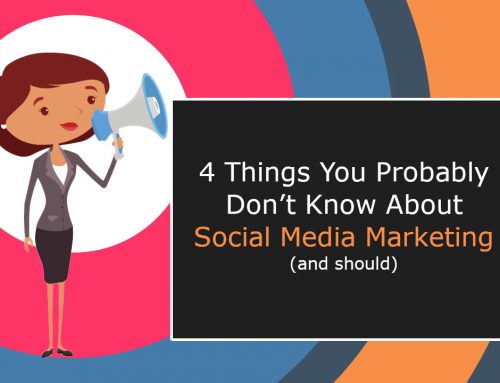The world changes at a remarkable pace these days, but it wasn’t always so. Today, one can buy a cell phone only to see it become obsolete within the same year. Marketing is no different, there are skills needed today which will be replaced imminently. Come into the future with us, and find out what you’ll need to stay on top.
Marketing Changes
Marketing is a fluid industry, because its tenets change over time, adapting to cultural changes and what is considered to be acceptable, as well as noble marketing practices. While it was fine in ages past to go door-to-door to sell things, today people tend to frown upon it, seeing it as an invasion of their privacy at worst, and at best, a major annoyance. The same can be said of cold-calling, which was once a booming industry and practiced widely. Nobody enjoys being called and given the “spiel” which is clearly scripted, and leaves little room for actual questions from the potential customer, much less time for that person to say they don’t want it. Worse? A great deal of telephone marketers who use cold calling these days are aggressive, pushy, and sometimes even rude to the people they’re angling to buy their product.
Trust Matters
Clearly there are good and bad marketers out there, and the bad ones tend to make the decent ones also look bad. People tend to lump all marketers together somewhere in the category where lawyers and dentists are. There is an innate sense of distrust, or looking for an angle when someone is approached by a marketer when it is done out of nowhere, which is why relationship building, and creating your list is so important. It is impossible to sell anything to someone who greets you immediately with distrust, and thanks to over-aggressive marketers using practices long abandoned by most – marketers aren’t the most popular of people. Trust building takes some time, but the reward is loyalty. These days, marketers have learned to let them come to you, and their job is to entice that to happen by providing quality content, and services to their potential clientele. This is going to change so much by 2020 that the field may be unrecognizable, and there are skills which will be needed by that time in order for success to be ensured.
The Way of the Future
2020 holds predictions that we’ve heard before. People thought that by the year 2000, we would have flying cards, and space-age buildings, and other equally fantastic ideas. 2000 came and went, and 2020 is fast approaching. While some people still believe that we’ll see those flying cars on the road which have actually been developed, and Tesla has made self-drive cars a reality, we’re still needing to look farther ahead to stay ahead when it comes to marketing in this upcoming new age. 5 million jobs are predicted to become obsolete; replaced by automated machinery or computers. AI will begin making decisions for us, which isn’t a large step considering things like Apple’s Siri, Google’s Home or Amazon’s Alexa. We stand on the precipice of the 4th major Industrial Revolution, and we need some sharp skills to compensate for an ever tightening job market, where we must prove not all things can or should be done by a computer.
Things we can expect to see during this time:
- Smarter Artificial Intelligence
- The “Internet of Things“
- Self-driving vehicles in mass production
- Nanotechnology improvements
- Renewable energy in ways never before thought of
- Quantum Computing
- Increased and improved biotechnology
- Increased movement to cloud-bases rather than local
- … and plenty more we can’t even dream up yet.
Here are the top 7 skills you’ll need as a marketer to not just stay afloat, but to thrive in this new age.
1. Complex Problem Solving Skills
AI will naturally see the connections between things, thanks to statistically available data, but it may have no idea that just because toilet paper sales rose, doesn’t mean that it has anything to do with men shaving off their mustaches. It might take two vastly different statistics, and assume there is a causal or connected relationship between the two things, devoid of actual human reasoning and creative thinking. You’ll need to make sure you can see relationships quickly between things, and also think creatively to provide the solution to a problem which hasn’t happened yet, just to stay ahead of the AI which gets smarter by the day.
In order to market in 2020, you’ll need to predict what people will need next, and deliver it.
2. Critical Thinking
Being able to gather data is great, but being able to decipher that data is better. An AI is unable to, as mentioned in #1, prove a relationship between two matching sets of data that would otherwise make no sense. In the example given, we’ll say in the month of November, when many men take up the Movember challenge – men shaved beards and moustaches at a very high rate, and somehow during this same month, sales of toilet paper spiked as well. An AI might link these two things together, to provide a statement like, “Toilet paper sales have skyrocketed because men are shaving.” An actual person would know this is ludicrous and one certainly has little to do with the other, unless said men were using the toilet paper to stick on the nicks and cuts, and happened also to be extremely bad at shaving, and were using old razors.
This sort of critical thinking is particular only to humankind, and until AI can keep up, this is going to be needed by marketers. When you’re analyzing the data you get from your analytics, or from a survey you’ve sent out, you need to think critically about that data in order to know the best move to make next just to stay ahead.
3. Creativity
AI is not creative by nature, but by design. The designers are human, which makes the AI seem human-like in creative decisions, but they’re not always great decisions. When AI is told to name colours, it comes up with some really crazy names and they aren’t appropriate for use. Google’s Deep Dream explorations have seen some crazy images come up with millions of iterations from the AI on existing art or photos, with things like birds, eyes, and buildings apparent throughout. A machine is not creative, it can be programmed by a creative person but it is not, by nature, a creative thinker. The next great marketing idea will not come from a machine, but from the abstract human mind. It will take some creative strategy building as a marketer to market to people in 2020, and the ability to create truly random bits of beauty for consumption.
4. People Management
Some things an AI will never be able to do, one of them is the ability to manage people. People skills are something only other humans can provide, since machines and AI, no matter how human-like feel cold to people. If you’re the marketing lead in your company and have a team working for you, you’ll need to let those management skills shine, and prove why your people management skills aren’t just good for those working under you, but also your potential clients. Knowing how to get things done with a team, to delegate and to lead by example are all qualities that people look for in a leader, and a leader tends to bring in sales. People like to follow someone who seems to know what they’re doing, and is someone they find to be noble, and trustworthy. Management skills will take you far in 2020.
5. Emotional Intelligence
AI cannot feel emotions, it can simulate them to some degree but it feels nothing itself. This makes a machine incapable of sympathy, empathy, or any other connection to humanity. Emotional intelligence is necessary for a marketer, to understand the needs of a client or potential client, and to bring about that feeling of warmth and humanity. People want to buy from someone who they feel really respects them, and understands their needs. Warmth as a marketer is going to get even more important in 2020, as AI begins to outstrip people of jobs long held by humans, as has been seen in factories for some time.
6. Negotiation Ability
AI cannot haggle with people, it cannot negotiate terms, or think up any sort of middle-ground which would be seen as a fair compromise to two parties. When you’re marketing in 2020 you may find you need to work alongside a partner, or other marketing team to produce more profit together, but that also means you’ll have to learn to work together, and set terms for that profit-sharing. This area is expected to grow by 2020, because marketers will increasingly need larger teams to accomplish greater goals and see bigger profits, but this means having to work alongside your own competitors sometimes, so bring those bargaining skills to the table!
7. Cognitive Flexibility
Last but not least, is the ability to offer different things to different groups of people, and understanding why that matters so much. An AI sees humans as equal in every way, with data points being the only difference – like the difference between a vegetarian and an omnivore. The AI can see results via a questionnaire as data points to divide people, but it has no idea how to market to these different groups in a reasonable way. For example, an AI may think it’s perfectly fine to use an image of a beef steak for advertising globally, without considering that if the image is used in places where beef/cattle are considered sacred, that it would be offensive.
It would be tantamount to someone in the USA seeing a filet of dog, which would be considered offensive most places – and is yet still done in some parts of the Far East. The ability to change marketing tactics based on culture, religion, location, gender and plenty of other major categories is best done by humans, and a marketer in 2020 will need to stay abreast of what best marketing practices are for those many different data points.
Predictions for the Future?
The top 5 industries in 2020 are expected to be
- technology and computational thinking
- care-giving
- social intelligence and new media literacy
- lifelong learning
- adaptability
The top ten most in-demand jobs are expected to be:
- Data analysis
- Medical technicians/workplace ergonomics experts
- Sales and marketing specialists
- Customer service reps
- Management analysts
- Software developers/computer programmers
- Doctors/Veterinarians
- Product designers/app designers
- Teachers
- Accountants/auditors






![Do you know BERT? [Google SEO]](https://magiwebsa.com/wp-content/uploads/2019/11/podvid-epi35-cover-500x383.jpg)